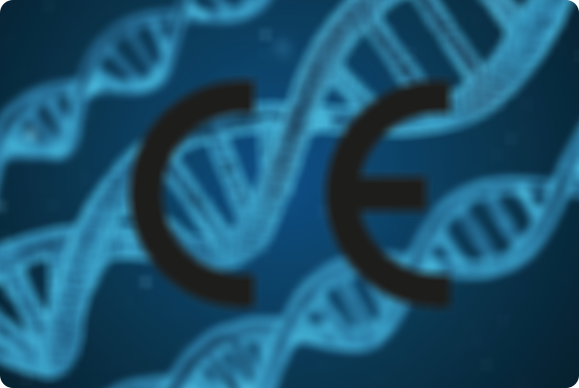 In vitro diagnostics sector
In vitro diagnostics sector
In vitro diagnostics (IVD) hold a specific place in the healthcare sector. Used at all steps of the patient pathway and all along the life, IVDs allow to screen and diagnose patients’ health status, prevent and monitor disease and monitor treatments. They can also be used for surveillance purposes.
In vitro diagnostics in the healthcare pathway

In vitro diagnostics industry companies provide complete solutions (instruments, reagents, services) which can be used at all of the stages of the patient pathway to clinical and anatomopathology laboratories.
What is an in vitro diagnostic system?
In vitro diagnostic tests and systems are health products used to perform diagnostic and screening analyses. They are used on samples (blood, urine, nasopharyngeal, saliva, etc.) taken from a patient and are processed in biological exams.
In vitro diagnostic industry provides diagnostic systems to laboratories and authorized healthcare professionals; systems include:
- Instruments (i.e. machines to perfom the biological analyses),
- Reagents and consumables,
- Software, in particular for the interpretation of results,
- Services, mainly maintenance and training.
To ensure patients’ and healthcare professionals’ safety, in vitro diagnostic systems are subject to specific European regulation which has been transposed into the French law (see below).
In vitro diagnostics industry companies develop, manufacture and market in vitro diagnostics systems.
To what regulations are in vitro diagnostic systems subject?
The marketing of in vitro diagnostic tests and systems in France and in Europe is governed by specific European regulation: CE marking (Directive 98/79/EC, which has been transposed into French law and, as of May 2022, Regulation 2017/746, better known as IVDR).
The aim of the regulation is to guarantee a high level of health protection and safety for patients, users and third parties, and to ensure that such devices attain the expected performance levels (specified by the manufacturer), consistent with the generally recognized state of technology and when used in compliance with the established rules of proper use and under normal conditions of utilization and maintenance.
In the context of regulated emergency procedures, Member States may set up national derogation procedures for the CE marking of tests.
In addition, each Member State may, in the context of its national screening and diagnostic strategy, define conditions for the use of these tests and require that they meet certain technical or performance criteria as part of their reimbursement.
The IVD industry, cutting-edge of its field
Although they account for only 1% of global public health spending, IVD industry actors are at the forefront of their field. Mixing scientific advances and technological innovations, their tests, reagents, instruments and software are the result of constant investment in research and engineering. They make it possible to obtain faster and more accurate answers and allow a deeper understanding of biological markers and molecules, providing ever more relevant information for the clinical follow-up of patients.
In fact, in vitro diagnostics is everywhere since more than 70% of medical decisions rely on IVD tests. Some diseases, such as AIDS, diabetes, and early-stage cancers, cannot be detected by other means than by analyzing samples taken from the patient: for these diseases, medical decisions are 100% based on IVD tests.





